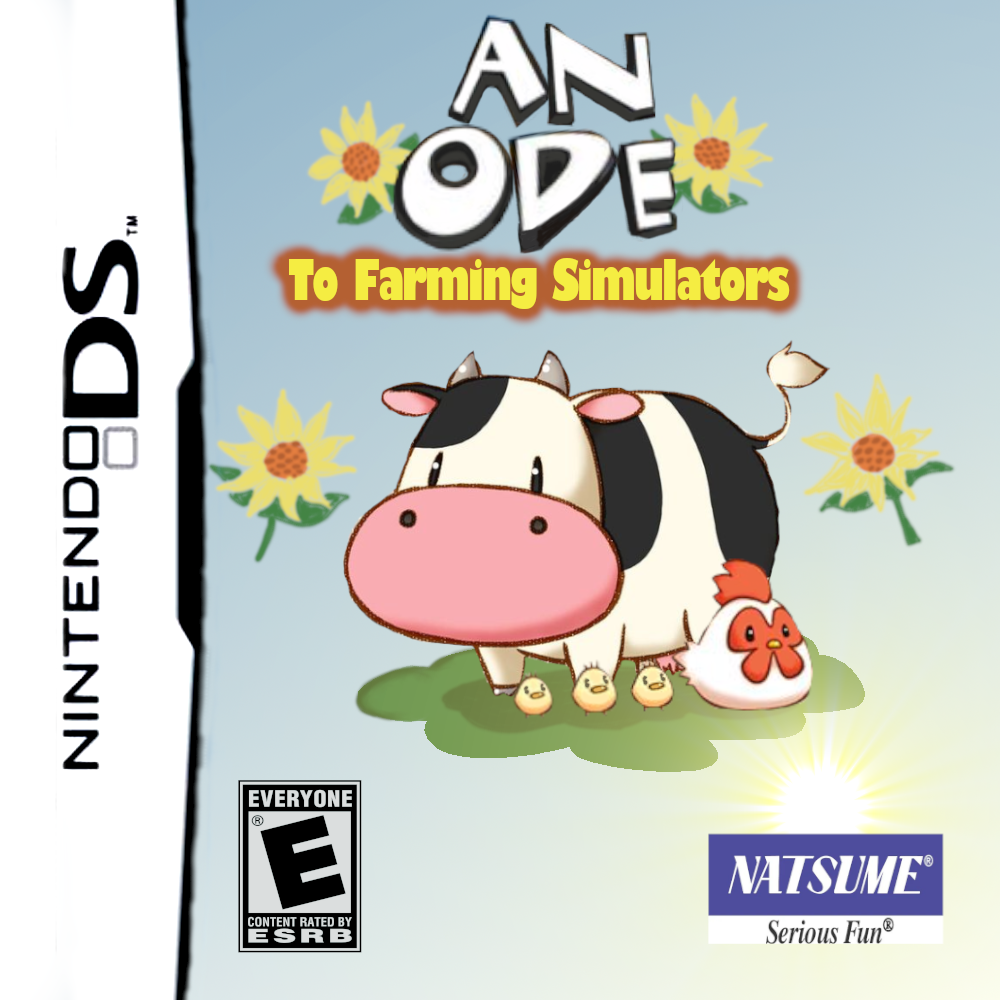Please visit response.fsu.edu for official FSU updates and resources.
An Ode to Farming Simulators
 The first game I ever owned myself was Harvest Moon DS: Sunshine Islands. I was beyond excited about what most people regarded as a decidedly mediocre game. But, for once, I could play something as obsessively as I wanted, not subjected to my brother’s occasional whims of sharing. I don’t think I even really knew what it was about when I picked it out, but that didn’t matter to me.
The first game I ever owned myself was Harvest Moon DS: Sunshine Islands. I was beyond excited about what most people regarded as a decidedly mediocre game. But, for once, I could play something as obsessively as I wanted, not subjected to my brother’s occasional whims of sharing. I don’t think I even really knew what it was about when I picked it out, but that didn’t matter to me.
The game was fairly straightforward in its concept– an earthquake had sunk part of the island chain, and it’s up to the player to collect stones and befriend magical sprites to raise them again, unlocking new areas and mechanics each time. Of course, the player is managing a farm on top of all of this because this is Harvest Moon. Having a farm is simply a basic tenant of the series.
This iteration of Harvest Moon is best remembered for it’s odd slew of game mechanics– too much of any randomized weather condition could kill your crops, blowing into the device’s mic made your horse run faster, and the economy existed in a fluctuating state of constant peril (probably because all the local resources sank with the islands). In all honesty, it was extremely tedious. Crops grew on a point system, forcing you to keep a physical tally sheet. Quicker days and an unforgiving stamina bar actively discouraged the player from expanding their farm, though it did make me excellent at time management. By all accounts, this game should not have sparked my love for the farming sim genre– but somehow, it did.
There’s something therapeutic about the simple routines this kind of game provides. Each morning, you wake up at the same time. You water the crops and feed the animals. Maybe you say hello to the townspeople if you’re feeling sociable or waste away in the mines if you aren’t. Even when disaster strikes, like tomato plants withering or entire islands sinking into the sea, nothing is ever truly catastrophic. You can replant. You can rebuild. You can always carry on.
The stakes are always relatively low. You have the opportunity to accomplish great things, but not anything too great. Take Stardew Valley for instance. One of your first big tasks is to repair the bridge down at the beach. No one seems to be particularly upset about it. There’s no time limit. And the reward? Just more beach to explore. Even the community center restoration, a key storyline, carries no real urgency. If you wanted to, you could pay an evil corporation to fix it for you and it would have little effect on your progress at all. Farming simulator games are blessedly self-paced. It allows players to have a sense of control over the narrative, without the pressure of things going poorly if they make a bad choice.
In a way, farming sims offer a break from the grandeur that most games strive for. And maybe that’s why I like them so much. It’s hard to find the desire to go on a world-saving adventure when I can't even save my grades. Most days, I’d much rather indulge in experiencing the life of a whimsical small town in the countryside. It’s rather comforting to know the most anyone expects of me on any given day there is a half-decent radish.
There’s a certain familiarity offered by these kinds of games. I don’t mean this in the sense of knowing the town and memorizing the villager’s routines, though there is that too. But, once you’ve played enough of these games, no matter what town or island you’re taken to, there’s a feeling that you’ve been there before.
So much of the genre is inspired by the titles within it. Stardew Valley and the more recent Fields of Mistria both cite Harvest Moon as a major influence and pay homage to it in their own ways. Stardew Valley features Harvest Moon characters in the posters on bedroom walls while Fields of Mistria included an artifact called the blue feather, a nod to its predecessor's marriage item. The games all add something new, yet opening any of them feels like coming home to something.
Harvest Moon, often credited as the first of its kind, was created with the idea of giving back to nature. Its creator, Yasuhiro Wada, hoped the player would put down roots and grow into a world that is just slightly more whimsical than their own, like the one of his childhood. For me, that’s exactly what these games do. Perhaps it’s the age-old joy of crossing things off my to-do list or the simple fantasy of owning land and having friendly neighbors. Maybe it’s the comfort of knowing that, unlike in the real world, everything is waiting for me to be ready for it. Whatever it is, I’ll keep coming back to the virtual fields to tend to my crops. Or to trade with some magical creatures to handle them for me.
Writer: Darby Shelton
Artist: Brooke Barnes



